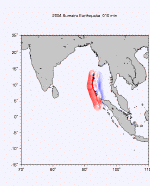
I watched an episode of the cartoon “Sagwa: The Chinese Siamese Cat” today on PBS while eating lunch (shǎguā 傻瓜, meaning “fool”). Aimed at kids aged 5-8 years old, it is perfectly targeted to keep me entertained. When watching anything these days, I always feel my critical knife want to go into attack mode but I must say I thought the cartoon was very cute and it prompted me to visit the PBS homepage for the show.
The cartoon follows the adventures of the mischievous cat 傻瓜 and other characters. The show is deeply engaged in ethical education and multiculturalism, and according to their site each episode is dedicated to: 1) Modeling strategies for dealing with the personal and social issues children face as they grow into a variety of new roles. 2) Exposing children to elements of cultures other than their own and showing that children all over share many of the same interests and emotions. In other words there is a clear universalistic Enlightenment approach here combined with an appreciation for cultural diversity.
 I’m not sure how much influence they have on children, but I certainly remember all sorts of warm and fuzzy lessons that learned from watching the Smurfs and Care Bears as a kid. Ok, so one of the Care Bear artists (writers?), Kathy Bostrom, is also author of “Little Blessings: God Loves You” and is perhaps the same Kathy Bostrom which was a previous president of the Presbyterian Writers Guild. However, I’m happy to see one author find that, “The occult images found in the Care Bear series are extremely subtle. On the surface, the Care Bears teach the children to express their feelings, especially those of love, to others. At first, these sound like very good ideas, but, they are Humanistic principles, which are in contradiction to God’s teachings. Magic and Eastern religious ideals also are prevalent in this series.” (Cited here from Phillips, Phil: Turmoil in the Toybox).
I’m not sure how much influence they have on children, but I certainly remember all sorts of warm and fuzzy lessons that learned from watching the Smurfs and Care Bears as a kid. Ok, so one of the Care Bear artists (writers?), Kathy Bostrom, is also author of “Little Blessings: God Loves You” and is perhaps the same Kathy Bostrom which was a previous president of the Presbyterian Writers Guild. However, I’m happy to see one author find that, “The occult images found in the Care Bear series are extremely subtle. On the surface, the Care Bears teach the children to express their feelings, especially those of love, to others. At first, these sound like very good ideas, but, they are Humanistic principles, which are in contradiction to God’s teachings. Magic and Eastern religious ideals also are prevalent in this series.” (Cited here from Phillips, Phil: Turmoil in the Toybox).
What I liked most about the Shagua/Sagwa cartoon, which is apparently based on a story by the bestselling author Amy Tan, was that unlike many cartoons that show aspects of cultures that are unfamiliar to many of its viewers, this cartoon actually tried to slip in a variety of cultural material which goes beyond the regular standard images. Sure, it had really stereotyped images in some scenes, but I liked how simple Chinese words constantly slipped into the dialogue (kinship terms, greetings like zaijian, food items like baozi, instrument names, and other daily words). Of course, many of the characters act in strangely Western ways, and promote entirely anachronistic values, but a child watching this will be exposed to a host of new cultural images, and vocabulary. After a word, for example is introduced, it is often simply referred thereafter by its Chinese name. I would love see more multi-lingual cartoons out there, even if this just means that we call baozi a baozi, and not a “steamed bun”!
As for the moral education aspects of the cartoon, looking over the list of “messages” in each episode, I liked how we start with an episode which mocks slavish obedience to authority! The question the site suggests parents ask children, “Ask your child to think of a rule that he or she believes is unfair. What could be done to change the rule?”

